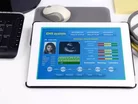Malpractice is still rife with the use of Electronic Health Records, report finds.

Malpractice is still rife with the use of Electronic Health Records, report finds.
A recent study by The Doctors Company has found that the use of Electronic Health Records has contributed to a number of patient injuries over the last 10 years.
Committed to supporting practices in the management of complexities surrounding modern healthcare, with expert guidance, resources, and coverage, The Doctors Company has become one of the largest physician-owned medical malpractice insurers, with 80,000 members and over $4 billion in assets.
The rise of digitisation is slowly transforming the healthcare sector since the implementation of the Health Information Technology for Economic and Clinical Health Act, especially within the realms of EHR management. However, it has also provided increased concerns surrounding the sharing of patient data, medicine management and patient safety across the board
The study has shown that claims in which EHR is a factor has risen from just two incidents from 2007-2008, to 161 from 2011-2016, a staggering increase.
The study also looks at the number of claims submitted from 2014 to 2016, and linked them with a previous study. Issues highlight ongoing challenges surrounding the integration of hospital EHR systems, such as the increasing number of data inputting errors which are repeatedly impacting patient care.
Related stories
- Healthcare sector the worst offender in race towards General Data Protection Regulation compliance
- Anthem Inc’s new IT hub will support its growing consumer healthcare focus
- The use of AI will transform patient outcomes, report finds
"This study makes an important contribution by chronicling actual errors, such as wrong medications selected from an auto pick list, and helps point the way to changes ranging from physician education to EHR software design,” comments Robert M. Wachter, MD, Professor and Chair, Department of Medicine, University of California, San Francisco.
Whilst the implementation of EHR platforms has opened the doors to a number of advantages in the healthcare industry, such as enabling health professionals to access information in real time and greater communication between various medical teams, the report highlights that there is still some work to be done surrounding the integration of such technology.
"Awareness of basic EMR risks can provide opportunities for organizational and medical staff leadership to adopt appropriate procedural and technical safeguards to avert or mitigate them," explained Joyce Benton, Assistant Vice President, Risk Control, CNA Healthcare.
"Even an employee's simple use of the copy and paste function of EMR systems creates patient safety and compliance challenges. The goal is to ensure that EMR technology serves as a problem-solver, rather than a problem-creator."
- How Zipline Uses Drones to Deliver Medicine Across AfricaTechnology & AI
- How is Schneider Electric Making the NHS More Accessible?Hospitals
- How DeepHealth is Using AI to Screen for Breast CancerTechnology & AI
- Martin Carpenter: How Tech is Reshaping Healthcare on JerseyDigital Healthcare



